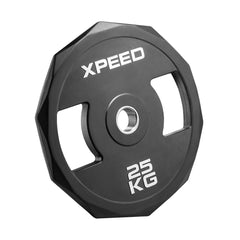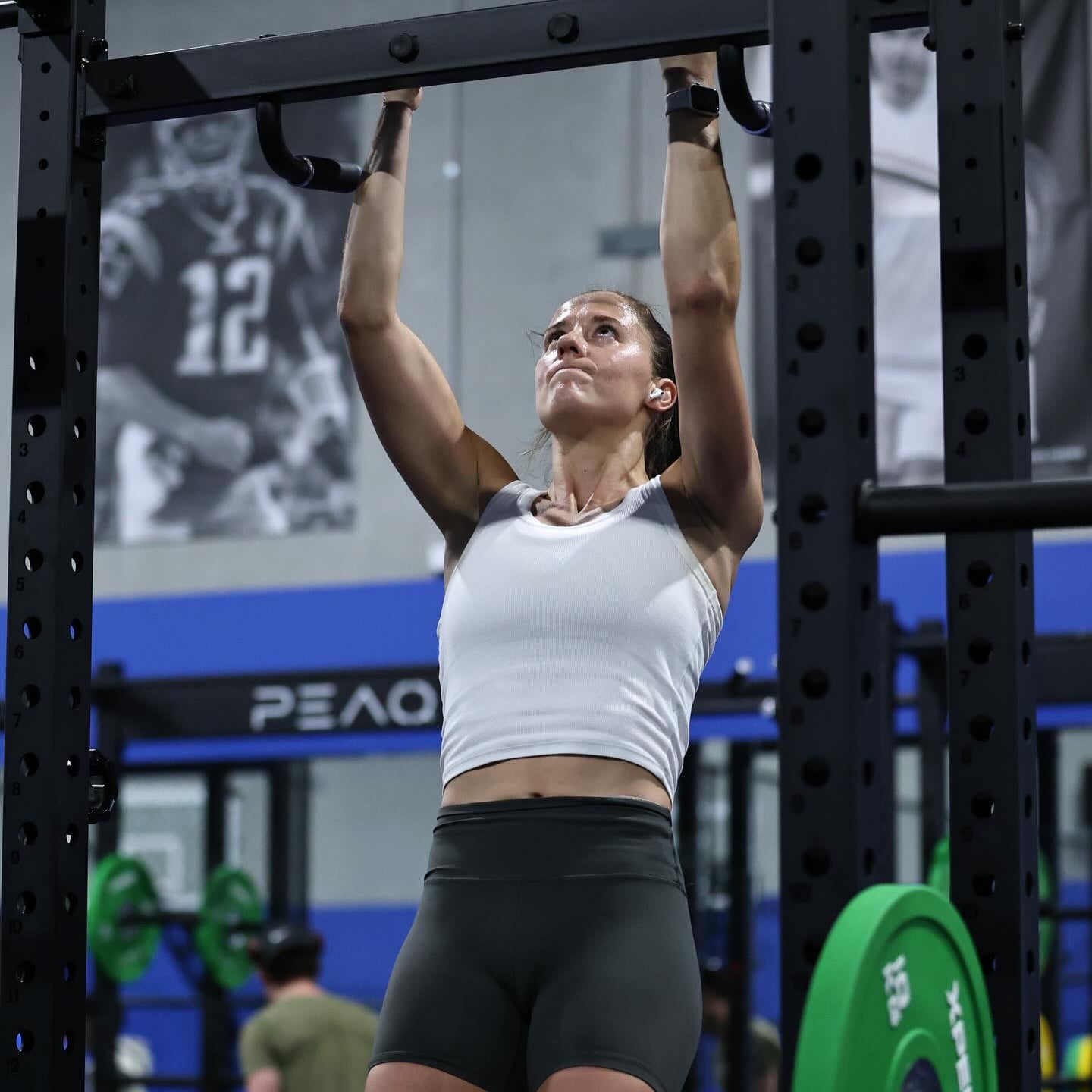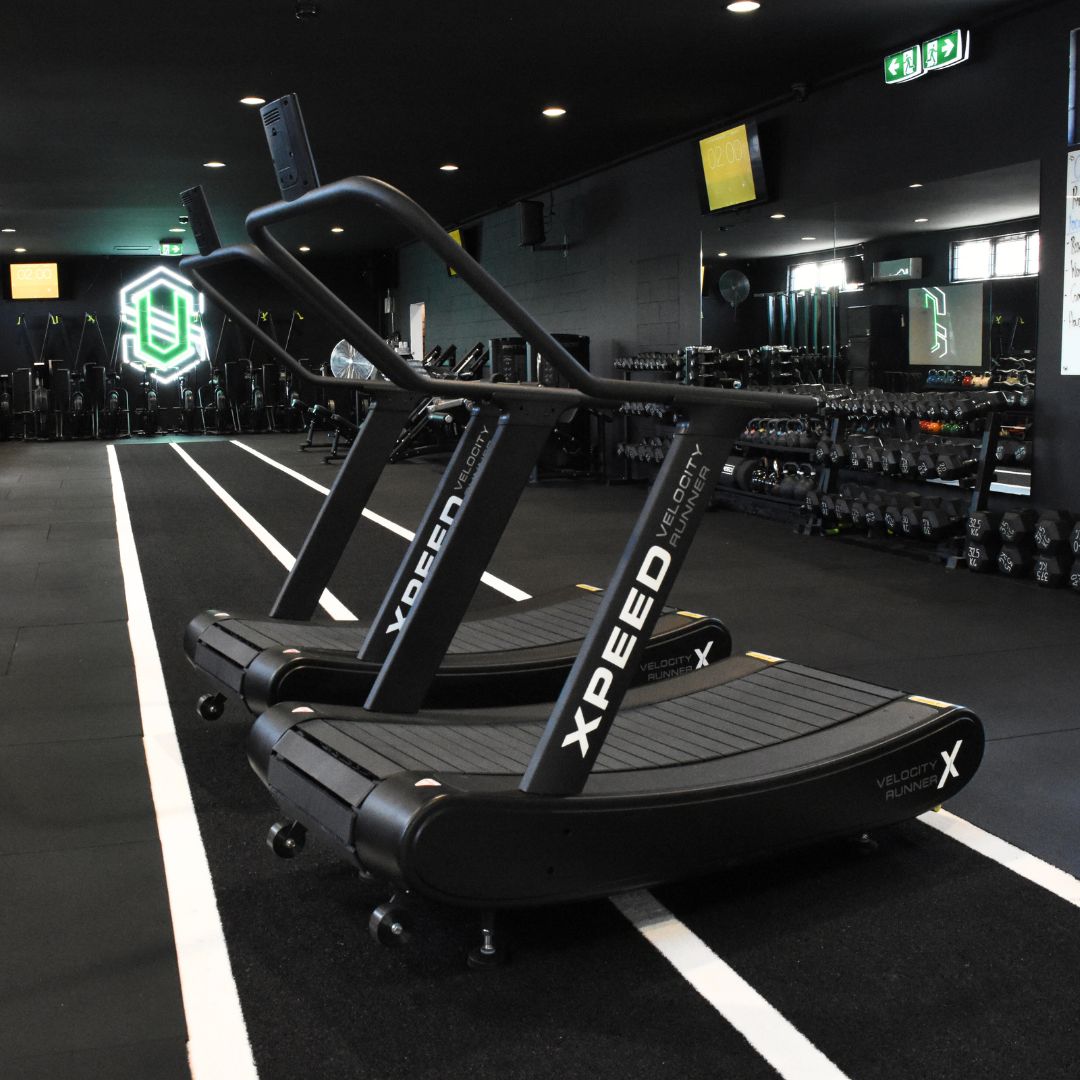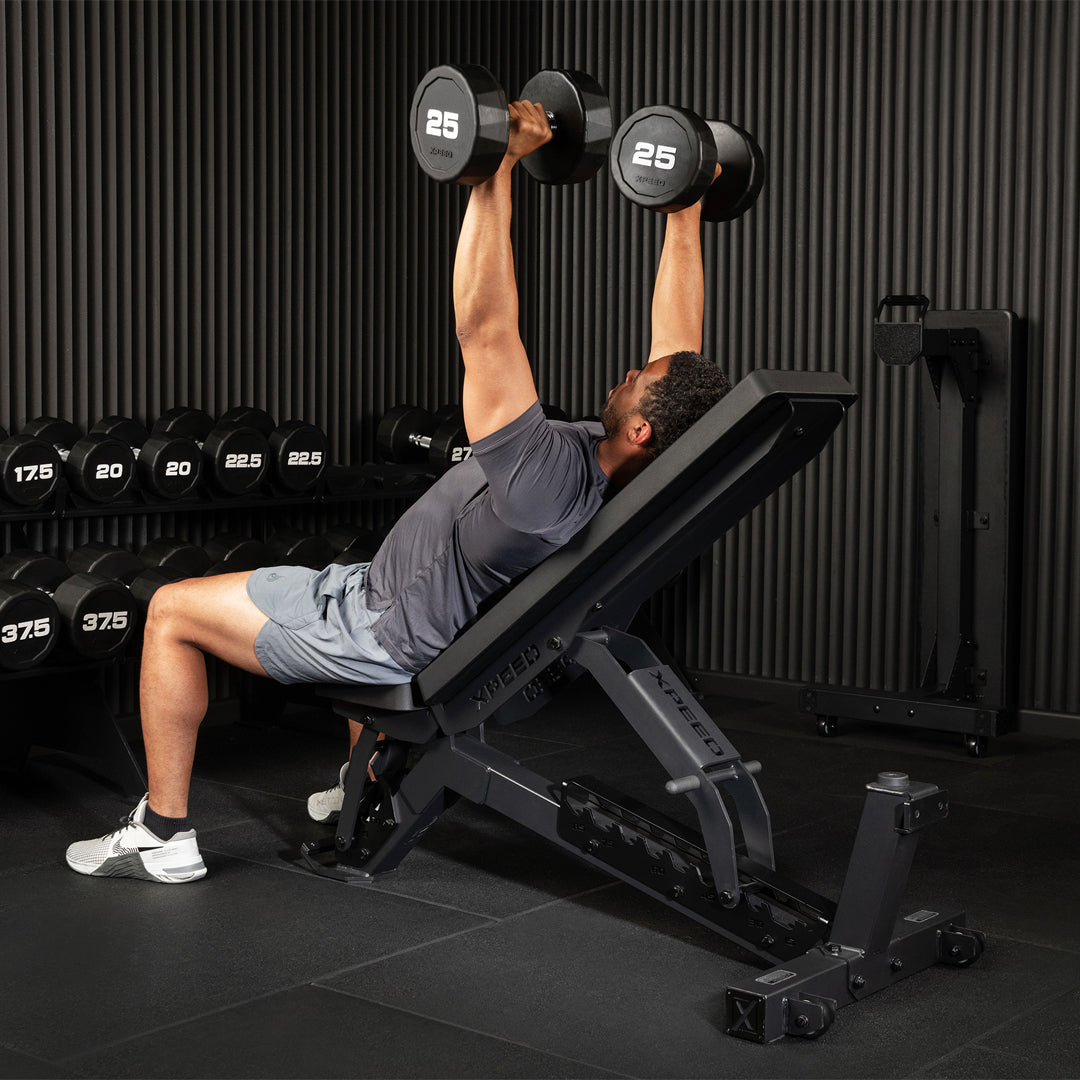Xpeed Weight Plate Buyers Guide
So what is the big difference between weight plates? When you're starting out or planning your dream gym set up this can be confusing to understand. So that's why we've put together this buyers guide for you. Simply put, standard plates are great for home training and olympic plates are for those who have outgrown the capabilities of standard plates. However, there's a lot more nuance to it than that which we discuss below.
Weight plate differences
The type of weight plate you'll need depends on a few things such as the materials they're made of, the type of barbell you intend to use, what type of exercises you'll be doing and what your budget is.
To break it down, understanding weight plates and their compatible bars is a good place to start. Standard weight plates have a different hole diameter compared to Olympic plates such as Rubber Coated Weight Plates, Fractional Plates, Bumper Plates and Competition Plates. The standard weight plates we range from Xpeed Fitness have a diameter of 29mm. Which means the bar you'll need to use with these standard plates is a standard spin or lock collar bar or Knurled DB handle with a 28mm sleeve diameter. Buying the wrong plates for the wrong bar is a common pitfall and is something you need to be aware of when looking at weight plates and barbells.
In contrast, Rubber Olympic Weight Plates, Bumper Plates and Competition Plates have a diameter of 51mm. Which means they're suitable for most Olympic barbells and plate loaded machines. Olympic barbell sleeves have a diameter of 50mm which helps creates a nice, snug fit on the barbell sleeve for the weight plate. This is important because it reduces slack, which we'll touch on a bit later.

| Standard Weight Plates tend to be made of cast iron and vary in different colours, the Xpeed range feature a black matte finish. Whilst you may still pay a decent price for standard plates they're on the more cheap and cheerful side of your gym expenses. For this reason, they're a great buy if you're starting out your fitness journey. One thing to note with this style of plate is that they're not designed for exercises where the weights are dropped such as clean and jerks or deadlifts. |
 |
There's several types of Olympic plates in the range we make at Xpeed. Rubber Olympic EZY Grip Plates, Bumper Plates, Competition Plates and Fractional Plates. Each have differeing characteristics for their perfromace and what they offer to the end user.
| Rubber Olympic Weight Plates are the most basic of the Olympic style plates, which makes them more budget friendly than Bumper and Competition plates. It's important to note that they are not made for repeated, heavy dropping. However, if that is not in your training plans anyway, they will get the job done for you. Rubber Olympic Plates are made with cast iron, covered in a low odour rubber coating and also feature a stainless steel insert which helps protect the barbell and plate loaded machine sleeves they're used on. The rubber coating helps protect the plates from rust and has the added benefit of reducing noise. Grooved handles, the ezy grip design and bevelled edges make them an easy plate to use and manoeuvre around the gym. It's this style of grip that allows the plates to be used beyond the barbell for exercises such as farmers walks, oblique twists, shoulder raises, lunges, squats and more. |
 |
| Bumper Plates are for the serious lifter. They're Olympic-sized weight plates made of thick, dense rubber. This design allows a loaded bar to be dropped safely without risk of damaging your barbell, platforms, the floor of your gym or the plates themselves. Furthermore, the compact width and higher plate density means you can fit more weight on the bar whilst experiencing limited bounce. A smooth finish and stylish markings on the plates means the sizes are easily recognisable from a distance. Bumper plates will fit snuggly on the barbell sleeve which reduces slack and gives a great feel to any lift. Basically this stops you sounding like Tin Man from The Wizard of Oz as you lift without the clinks and clanks of weight plates bumping together. These characteristics do drive the cost of Bumper Plates higher than other plates and for the serious trainer the cost is worth it. |
 |
Generally speaking these are some of the leading features and benefits of Bumper Plates.
Features |
Benefits |
|
IWF standard 50.4mm inner and 450mm outer diameters |
Sets the bar at ideal deadlifting height |
|
IWF standard color-specific weight plate identification |
Plates are the same diameter for better bar placement |
|
Made from high-density durable rubber |
Minimizes damage to floor, lifting platform, and plates themselves |
|
Quality smooth finish and stylish color-specific print |
Adds aesthetic appeal to any strength training gym |
|
Compact thickness allows for more plates to be loaded |
Greater durability, less likely to crack or break like cast iron plates |
|
Competition Plates are the crème de la crème when it comes to weight plates as they set the gold standard for quality and performance. These plates are for the athlete bitten by the powerlifting bug and are suitable for the elite home set up or commercial gym. They feature a number of benefits for the user thanks to their design. These features include; - A central steel disc insert - Low noise and low vibration - Weight accuracy within 10 grams or less which is nescessary for sanctioned weightlifting competitions - Quality tested - Test dropped in the factory 1000's of times for quality assurance Thanks to the solid steel core embedded into the plate itself, competition plates manage to combine two great features, shock absorption and a thin diameter. A key feature of Competition Plates is their colour coding which makes them instantly identifiable for coaches and athletes during training. Red - 25KG, Blue - 20KG, Yellow - 15KG and Green - 10KG. If you're chasing powerlifting PB's Competition Plates are for you. |
 |
|
Fractional Plates - As the old saying goes, from little things big things grow and that is exactly the case with Fractional Plates. Designed to help you make small increments which result in consistent weight gains in your training. In addition, they follow the International Weightlifting Federation colour code and size specifications. Made from steel with a power coated finish, fractional plates also have good weight accuracy, usually to within 10 grams or less. In the long run small gains will really add up so a set of fractional plates will always come in handy. The best way to surpass your PB's is to creep up on them. Benefits: - Make consistent small strength gains - Smash plateaus - Decrease the chance of risky lifts. Features: - 100mm plate diameter - 50.4mm Collar - Powder coated for easy recognition - International Weightlifting Federation colour code and size specifications |
 |
Summary:
As building strength takes time, when you're at the beginning of your weightlifting journey, standard weight plates and standard bars is most likely a good place to start.
As you build strength and power you will eventually start to look at moving to equipment that compliments your training status. Power lifting and Olympic lifts require the right plates and barbells to aid this style of training, which will also help avoid injury.
Ultimately, the type of weight plate you'll need depends on the exercises you intend to do, the type of barbell you'll use and your budget.















